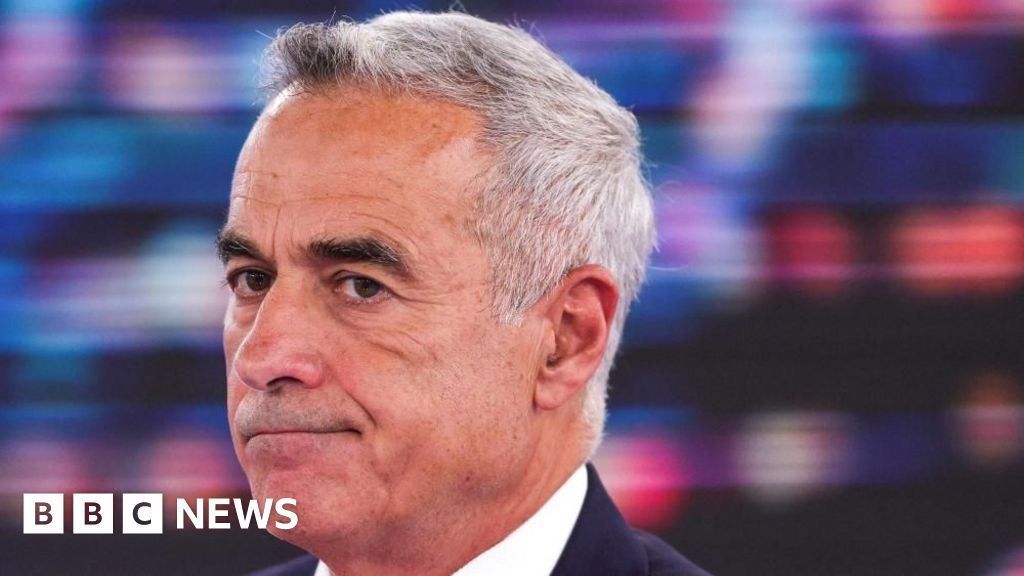At the twilight of the current administration at the federal level, the target of President Bola Ahmed Tinubu has always been a $1trillion economy. This put audacious tasks on sectors that made up the economy.
With the financial service sector expected to play an active role in the realisation of this target, two sub-sectors of the financial services industry, that is, insurance and pension sectors, which are in possession of funds to oil economic development, have critical roles to play.
In 2023, the premium income of the insurance industry rose above N1 trillion, a good base for investment while the pension funds asset is currently above N20 trillion of which there is provision for investment in infrastructure development.
With enough infrastructural amenities, this will boost economic activities that will increase the country’s bottomline, allowing the federal government to meet its $1 trillion target.
To this end, experts converged at the just-concluded 9th Annual Conference of the Nigerian Association of Insurance and Pension Editors (NAIPE) in Lagos, to discuss the theme: ‘Towards A $1 Trillion Economy: Roles of Insurance and Pension Sectors.’
Experts’ Reactions
The commissioner for Insurance and chief executive of National Insurance Commission (NAICOM), Olusegun Omosehin, said, the insurance industry’s financial soundness and stability are essential for supporting businesses and contributing to the $1 trillion economy projected by the present administration for achievement by 2030.
While giving his remark at the event, Omosehin, who was represented by the head of Corporate Affairs, NAICOM, Abba Halil Inuwa, noted that adequate capitalisation, commensurate with insurers’ risk profiles, is vital for the insurance industry’s growth and development.
The desired and pragmatic support for a $1trillion economy, he said, could only be achieved by leveraging technology to enhance insurance accessibility, which, he noted, has formed the fulcrum of another key area of focus, adding that, consolidated financial solutions and one-stop shops have become the norm, necessitating insurance industry’s adoption as a critical sector of the economy to remain relevant.
“As the insurance regulator, NAICOM is therefore committed to creating an enabling environment that will consistently enhance increased capacity of the insurance institutions, as well as ensuring that the insurance industry becomes stronger and more stable in delivering on its responsibilities,” he said.
Omosehin mentioned that the theme of conference resonates deeply with the insurance sector’s aspiration of contributing significantly to President Bola Ahmed Tinubu’s vision for a $1 trillion economy, saying, in recent times, the insurance sector has been at the forefront of discussions regarding its potential to unlock economy’s growth.
“As a vital component of the financial sector, insurance plays a critical role in mobilising savings, managing risk, ensuring financial stability, creating job opportunities, and driving long-term projects and infrastructure development. To achieve these objectives, the commission has implemented various market developmental initiatives aimed at enhancing the insurance sector’s competitiveness and robustness,” he stressed.
To him, in line with the insurance industry roadmap, we have identified five critical areas for immediate implementation, adding that these encompass safeguarding policyholders’ interests; strengthening supervisory capabilities; improving industry safety and soundness; fostering innovation and sustainability; and enhancing insurance accessibility and penetration.
With the current strategies in place, he said, the Nigerian insurance market is poised for rapid and stable growth, characterised by significant improvements in operational statistics, even as a collaborative effort among sector stakeholders will facilitate seamless growth, noting that collective focus must remain fixed on fulfilling obligations to policyholders.
Prompt settlement of genuine claims, he stated, is crucial to market growth, addressing the sector’s obvious and perceived challenges.
On her part, the acting director general, National Pension Commission (PenCom), Omolola Oloworaran, stated that, her commission as well as the pension sector is keying into this target by creating the base for the progression of the nation’s economic growth, even as the sector is gradually paying active roles in delivery of several infrastructural projects across the country.
This, she promised, will continue, urging government and relevant stakeholders to take advantage of the investment guidelines to leverage funding opportunities from the pension assets as provided by the Pension Reforms Act (PRA) 2014.
The acting DG who was represented at the occasion by the zonal head, South-West Zonal Office, PenCom, Akinsola Adeseun, emphasised the need for stakeholders in the insurance and pension sectors to come together and work hard to ensure the success of the government’s ambition, even as he commended NAIPE for the conference.
She also highlighted the critical roles insurance and pension sectors play in the growth of every economy.
“The insurance and pension sectors are indeed veritable cornerstones in building a strong and resilient economy. Together, they provide financial security and stability for individuals, businesses, and the nation at large.
“Our collective goal of advancing towards a $1 trillion economy is not a mere aspiration but a shared responsibility. This conference serves as a vital platform to exchange insights, ideas, and strategies that will propel us toward achieving this ambitious target.
She reassured all stakeholders that PenCom remains committed to continuously improving service delivery across the Pension Industry.
Similarly, the chairman of the occasion, a founding coordinator of FBS Reinsurance Limited, Fola Daniel, said, the theme of the conference was not just timely but essential, as we navigate the challenges and opportunities ahead.
Stating that the conference was a pivotal moment in the insurance industry—one that calls for reflection, innovation, and collaboration, he added that, “today, we are privileged to have with us a diverse array of speakers, thought leaders, and industry experts who will share their insights on the evolving landscape of insurance and pensions.”
Moreover, an economics and financial analyst, Dr. Afolabi Olowookere charged the federal government to put mechanisms in place that will align current economic realities with the expected economic growth.
Olowookere, who is also the managing director/chief economist, Analysts Data Services & Resources Limited, advised the federal government to tinker with the current policies and speed up infrastructure development to encourage more investments, if it must realise the $1 trillion economy projection.
According to Olowookere, the country’s Gross Domestic Product grew from 2.98 per cent in the first quarter of the year to 3.19 per cent in the second quarter, noting that the forecasts in the short to medium term remained weak. He said, inflation and other socio-economic manifestations, such as, interest rates could constitute obstacles to achieving the projection.
To him, “inflation rate rose from 21.82 per cent in January 2023 to 34.19 per cent in June 2024 and declined slightly to 33.40 per cent in July 2024 and further to 32.15 per cent in August 2024. Inflation reached 32.15 per cent (YoY) in August 2024, driven mainly by food price inflation and loose financial conditions.
“With continued monetary tightening, IMF projects inflation would gradually decline to 24 per cent (YoY) at the end of 2024 and further to 14 per cent by 2027.
“Hence, interest rate is expected to remain relatively high in response to inflation and economic instability.
“Naira has depreciated by 71.15 per cent between January 2023 and August 2024, rising from N461/US$1 to N1,598.1/US$, now around N1,650/US$. Naira will likely continue to face gradual depreciation pressures due to trade imbalances and inflation.”
He emphasised that managing the economy under the current economic setting would, at best, grow the economy to around $450 billion by the projected 2030 date.
Reflecting on the current GDP position, the financial analyst identified the leading contributors to Nigerian outputs to include Agriculture, ICT, Trade and Manufacturing.
Olowookere noted that the financial and insurance sectors account for 6.579 per cent of Nigeria’s GDP, but continue as the major driver of economic growth, noting that, “It has remained the fastest growing sector in recent time. The performance of the Nigerian economy has been mixed in the last one year.
“The performance of the financial sector and fiscal space has been largely positive. But changes in the real sector of the economy have not been impressive.
On the Nigerian insurance sector’s outlook and contribution to the GDP, Olowookere mentioned that the total assets in Nigeria’s insurance industry grew by 36.9 per cent in Q1 2024 from N2.4 trillion in Q1 2023 to N3.3 trillion.
“Non-life businesses accounted for NI.94 trillion while life businesses contributed N1.39 trillion. NAICOM sees the market as sound, stable, and profitable with a positive outlook.The insurance uptake remains stagnant and critically low as only 3.1 per cent of adults (3.4 million) were reportedly covered by a regulated insurance policy, according to EFInA 2023 report.
“The sector’s total value added in 2023 was N687.3 billion. Its contribution to GDP is less than 0.6 per cent. Its growth rate fluctuates over time, recording 13.3 per cent in Q2’24, far higher than 3.19 recorded for the entire economy.”
The financial analyst also hinted on the emerging trend in the sector with regard to digital transformation, adding that the adoption of digital technologies was revolutionising the way insurance products are marketed, sold, and serviced.
According to him, from online policy purchases to mobile claims processing, insurers are leveraging technology to enhance the customer experience and streamline operations.
“Insurtech companies are revolutionising the traditional insurance industry by introducing new products, streamlining processes, and reaching untapped market segments, enhancing efficiency and customer engagement. “Insurers are utilising data analytics to provide personalised products and services, enhancing customer experience and loyalty through improved communication channels like chatbots and social media engagement,” he added.
Conclusion
Meanwhile, the executive director of Parthian Partners, Adeyemi Sadiku, urged Nigeria’s insurance and pension sector players to take significant steps toward contributing to the federal government’s ambition of achieving a $1 trillion economy by 2030 through investment in the capital market.
Sadiku, while speaking as a panellist at the conference, emphasised that both sectors need to channel investments into long-term financial tools such as federal government bonds and commercial papers, which can boost the country’s capital markets. He pointed out that it’s not just about pension fund managers investing the Retirement Savings Accounts (RSAs); individual investors should also look to broaden their portfolios.
In order to invest, you need to first save, Sadiku said. His remarks aligned with the overarching theme of the discussion, which highlighted the need for increased domestic and foreign savings to fuel economic growth.
The keynote speaker, Olowookere, had earlier echoed Sadiku’s sentiments, asserting that investment—driven by both domestic and foreign savings—is crucial for economic growth. Olowookere underscored the difficulty of achieving the government’s $1 trillion GDP target by 2030, citing the sharp depreciation of the naira, which fell by 71.15 per cent from N461 per dollar in January 2023 to N1,650 per dollar as of August 2024.
Under these conditions, Olowookere projected that Nigeria’s economy could reach $450 billion by 2030, far short of the desired $1 trillion goal.
Olowookere also urged the government to focus on increasing the income levels of the population, arguing that no savings or investment target can be achieved with the current low-income environment, especially, given the persistent inflation crisis. He cited ADSR research, noting that the total assets of the insurance sector, which were estimated at $3.9 billion in 2023, had shrunk to $2.2 billion in 2024 due to naira depreciation.
“Projections indicated that Nigeria’s GDP could grow from $265.4 billion in 2024 to $681.9 billion by 2030. However, should the government’s $1 trillion target be met, the total assets of the insurance sector would be expected to soar to $20.5 billion by 2030, a significant jump from the $6.4 billion baseline projection,” he stressed.
Other experts, who spoke at the event, collectively emphasised the importance of channelling investments into Nigeria’s capital markets and the need for long-term planning, as well as the critical role of policy support in driving the country toward its economic goals.
For Sadiku, achieving this ambitious target will require a collective effort from all sectors, especially, pension and insurance industries, to balance innovation with safeguarding investor funds and ensuring sustainable growth.

 1 week ago
23
1 week ago
23















 English (US) ·
English (US) ·